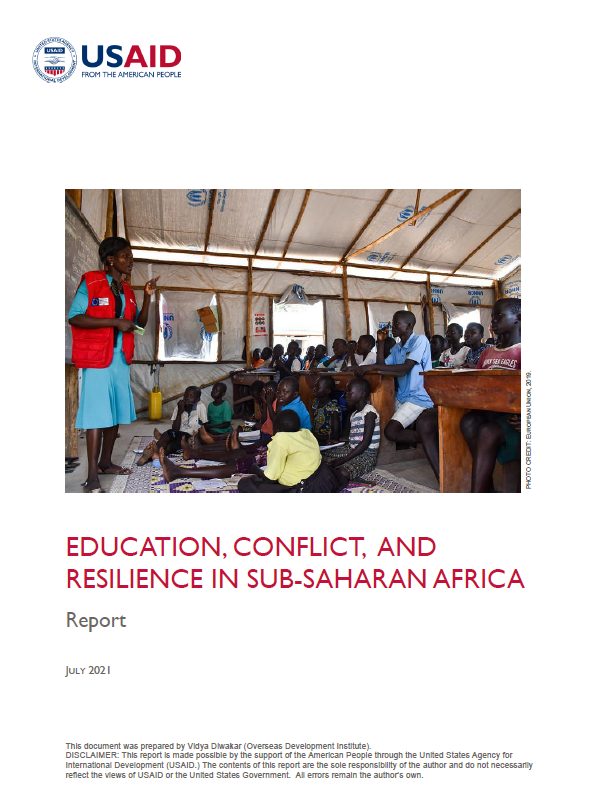The Sustainable Development Goals call for action in many areas relevant for girls and boys, not least quality education, but challenges in achieving progress may be aggravated by factors including poverty and armed conflict. Conflict has negative impacts on education, which can operate through a variety of supply- and demand-side channels. It can destroy infrastructure, displace students and teachers, and modify the returns to schooling, all of which can limit school enrolment (e.g. Akresh and de Walque 2008; Dabalen and Paul 2014; Serneels and Verporten 2012; Poirier 2012; Bertoni et al. 2019). Even in countries where primary school enrolment rates may be increasing, conflict can widen disparities in education access and contribute to the intergenerational transmission of poverty.
In this context, strengthening resilience capacities that can enable children living in conflict-affected areas to continue to access education is critical. USAID’s 2018 Education Policy recognizes that in order to strengthen resilience, “education in partner countries must have the capacity to embed effective approaches to improving learning and education outcomes, to innovate, and to withstand shocks and stresses” (USAID 2018, p. 17). Conflict is generally not a “shock” but more a social process, reflecting something structural and with a long time-dimension (though a single conflict event and its impact may be experienced as a shock locally). The ability to access education in contexts of protracted crises is critical.
This report examines the links between conflict, education, resilience and poverty dynamics in sub-Saharan Africa in a set of USAID Resilience Focus Countries. It relies on panel data from Ethiopia, Malawi, Niger, Nigeria, Uganda, and the Democratic Republic of Congo (DRC) to investigate the relationship between conflict and education, focusing on girls and boys in households on different poverty trajectories (see Box 1). It then builds on Diwakar et al. (2021) to examine the types of resilience capacities that can promote school access for children in conflict-affected areas. In doing so, the paper attempts to contribute to the knowledge base on the pathways through which conflict affects education differently for girls and boys in households on different poverty trajectories, and how resilience capacities of households and institutions can be supported to contribute to increased enrolment in situations of conflict and violence.
Author: Vidya Diwakar


